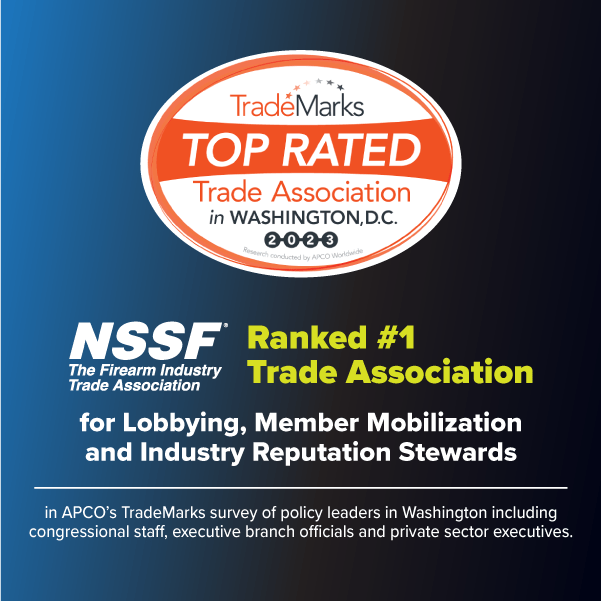 Back to News
Back to News
July 22, 2022
Antigun Senators Bloviate Over Inability to Block Firearm Exports
If you didn’t watch the U.S. Senate Banking, Housing, and Urban Affairs Committee hearing on Advancing National Security and Foreign Policy Through Export Controls: Oversight of the Bureau of Industry and Security (BIS), no one will blame you for missing out. I endured the pain for you.
The spectacle was made more agonizing by antigun Sens. Bob Menendez (D-N.J.) and Elizabeth Warren (D-Mass.) complaining they can’t use their Senate roosts to block firearm exports. This was root-canal level of pain.
The agony is that these two senators are still trying to undo export reforms (“Export Control Reform – ECR”) initiated by the Obama administration and finalized for sporting firearms and ammunition products under the Trump administration. It took more than a decade to transition export licensing responsibility for firearms and ammunition to the Department of Commerce – Bureau of Industry Security (BIS) from the Department of State – Directorate of Defense Trade Controls (DDTC). The bipartisan ECR actually enhanced national security by allowing the State Department to focus on what Obama Defense Secretary Robert Gates called “the crown jewels” – military hardware like tanks, missiles, fighter jets, and artillery – while allowing Commerce to oversee exports of commercial products including sporting and commercial firearms.
Human Rights Claims
The witness was Under Secretary of Commerce for Export Administration Alan Estevez, whose nomination by President Biden Sen. Menendez blocked until he extracted a change to the export administration regulations (“EAR”) that I’ll explain later.
In his questioning of Under Secretary Estevez, Sen. Menendez tried to characterize the BIS licensing process as lacking with concerns to human rights reviews. This, of course, isn’t true. Every single firearm export license application goes through an interagency review by the Department of Commerce (DoC), Department of State (DoS) including the Bureau of Democracy, Human Rights, and Labor, Department of Defense (DoD) and the Department of Energy (DoE). Any agency involved can block an export license. That’s right, the State Department can stop an export on human rights grounds. Or course, Sen. Menendez knows this because he is the Chairman of the Senate Foreign Relations Committee that has jurisdiction over the State Department. Additionally, BIS uses the interagency resources to check foreign parties against all the U.S. Government’s watch lists to ensure nothing is being exported to places or people the United States does not want. If that’s not enough, all firearm license applications undergo a 100 percent end-user check by BIS’s Office of Export Enforcement (OEE), even if that purchaser was just checked by OEE last month, last week or yesterday. No other industry, and no other commodity controlled by BIS, undergoes 100 percent end-user checks.
Sen. Menendez’s real problem is that the new voluntary BIS rule implementing Congressional Notification for semiautomatic firearms being exported to certain countries doesn’t allow Congress to disapprove the license. This is the rule change extracted from Commerce Secretary Gina Raimondo to allow the Senate to vote on Mr. Estevez’s nomination. He wants the ability for Congress to say “no” to a sale that has been approved after interagency review.
Prior to the ECR, when DDTC licensed the export of commercial firearms, Congress required DDTC, after the same interagency review described above, to give it notice of sales over $1 million dollars (virtually all firearm exports). But the truth is – as Chairman Menendez knows – Congress has never stopped an export of firearms after receiving notice.
‘Rubber Stamp’ Claims
Sen. Warren wasn’t to be left out. She demanded – again – that all semiautomatic firearms be banned for export, and export control of firearms transferred back to the State Department’s Directorate of Defense Trade Controls (DDTC). She pivoted to math that only Congress can understand.
Sen. Warren claimed that BIS approved $15.7 billion in firearm licenses in a 16-month period versus $12 billion approved by DDTC in a similar period. Under Secretary of Commerce Estevez tried to correct her by saying the BIS figure includes all weapons, not just firearms. Sen. Warren even insultingly asked Under Secretary Estevez whether BIS was working for the United States or “the gun industry.”
Sen. Warren stuck to her own fuzzy math, claiming this showed a “30 percent increase in firearm exports,” which is untrue. Selective facts didn’t end there. She ignored that the State Department can deny exports in their reviews to castigate BIS that “only .4 percent of license applications are denied.” This set her up to wrongly claim firearm exports are going to “bad” countries like Mexico or the Philippines. In fact, BIS has been doing a deep review of all licenses for these two countries, and if a license is granted, BIS has in some cases added restrictions and reporting requirements.
Sen. Warren’s big “.4 percent denial” claim is deliberately misleading. This figure is merely a percentage of total license applications and has nothing to do with commodities being licenses, the value of those licenses or the countries of intended export. It doesn’t account for hundreds of applications for firearm parts, or small firearm or ammunition orders, not to mention the thousand-plus applications for individuals in Brazil alone, most of which have nothing to do with semiautomatic firearms. License denials from DDTC are an equally small percentage.
Sen. Warren was clearly looking for a “made-for-television” campaign moment. The problem is her facts were so slanted, they fell on their own before she even had the chance to trample them. When it comes to U.S. export controls, Sens. Menendez and Warren have one goal – stop legal firearm exports any way they can. They want to use BIS as an instrument to cause economic harm to members of our industry.
You may also be interested in:
Categories: BP Item, Featured, Government Relations, Manufacturers, Retailers, Top Stories









